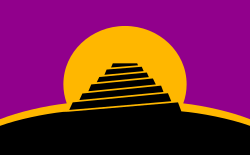Introduction

A constructed language (shortened to conlang) is a language whose phonology, grammar, orthography, and vocabulary, instead of having developed naturally, are consciously devised for some purpose, which may include being devised for a work of fiction. A constructed language may also be referred to as an artificial, planned or invented language, or (in some cases) a fictional language. Planned languages (or engineered languages/engelangs) are languages that have been purposefully designed; they are the result of deliberate, controlling intervention and are thus of a form of language planning.
There are many possible reasons to create a constructed language, such as to ease human communication (see international auxiliary language and code); to give fiction or an associated constructed setting an added layer of realism; for experimentation in the fields of linguistics, cognitive science, and machine learning; for artistic creation; for fantasy role-playing games; and for language games. Some people may also make constructed languages as a hobby, or in connection to worldbuilding.
The expression planned language is sometimes used to indicate international auxiliary languages and other languages designed for actual use in human communication. Some prefer it to the adjective artificial, as this term may be perceived as pejorative. Outside Esperanto culture, the term language planning means the prescriptions given to a natural language to standardize it; in this regard, even a "natural language" may be artificial in some respects, meaning some of its words have been crafted by conscious decision. Prescriptive grammars, which date to ancient times for classical languages such as Latin and Sanskrit, are rule-based codifications of natural languages, such codifications being a middle ground between naïve natural selection and development of language and its explicit construction. The term glossopoeia is also used to mean language construction, particularly construction of artistic languages.
Conlang speakers are rare. For example, the Hungarian census of 2011 found 8,397 speakers of Esperanto, and the census of 2001 found 10 of Romanid, two each of Interlingua and Ido and one each of Idiom Neutral and Mundolinco. The Russian census of 2010 found that in Russia there were about 992 speakers of Esperanto (the 120th most common) and nine of the Esperantido Ido. (Full article...)
Selected language
Ithkuil is an experimental constructed language created by John Quijada, designed to express deeper levels of human cognition briefly yet overtly and clearly, particularly with regard to human categorization. Presented as a cross between an a priori philosophical and a logical language striving to minimize the ambiguities and semantic vagueness found in natural human languages, Ithkuil is notable for its grammatical complexity and extensive phoneme inventory, the latter being simplified in the final version of the language. The name "Ithkuil" is an anglicized form of Iţkuîl, which in the original form roughly means "hypothetical representation of a language". Quijada states he did not create Ithkuil to be auxiliary or used in everyday conversations, but rather to serve as a language for more elaborate and profound fields where more insightful thoughts are expected, such as philosophy, arts, science and politics.

The many examples from the original grammar book show that a message, like a meaningful phrase or a sentence, can usually be expressed in Ithkuil with fewer sounds, or lexically distinct speech-elements, than in natural human languages. For example, the two-word Ithkuil sentence "Tram-mļöi hhâsmařpţuktôx" can be translated into English as "On the contrary, I think it may turn out that this rugged mountain range trails off at some point". Quijada deems his creation too complex and strictly regular a language to have developed naturally, but nonetheless a language suited to human conversation. No person, including Quijada, is known to be able to speak Ithkuil fluently.
Three versions of the language have been publicized: the initial version in 2004, a revised version called Ilaksh in 2007, and a final, definitive version in 2011. Find out more...
Did you know...
...that Esperanto is the world's most widely spoken constructed language, with as many as 2 million speakers?
...that Brithenig is a language that shows how Vulgar Latin could have evolved if it had displaced Celtic in Great Britain?
...that Marc Okrand, who became famous as the creator of Klingon, also created the Atlantean language for the Disney film Atlantis: The Lost Empire?
Current events
(none)
Corresponding categories
Projects

|
You are invited to participate in WikiProject Constructed languages, a WikiProject dedicated to developing and improving articles about constructed languages. |
Things you can do
-
Join: Constructed Languages WikiProject & add {{Wikipedia:WikiProject Constructed languages/Userbox}}
Follow: Recent changes in related articles
Tag: {{WP conlangs}}, {{Constructed languages}}, and {{Infobox language}} (see WP:CL Templates)
Evaluate: Everything in Category:Unassessed constructed language articles
Report: Edit wars and deletions
Expand: everything in category:Constructed language stubs
Requests:
-
Abakwi, Ancient Language, Arovën, Baza, Bluddian, Dremlang, Eaiea, Eloi, Ekspreso, Esperando, Fasile, Glide, Herman Miller, Language Creation Society, Latejami, Mezhdunarodny Nauchny Yazyk, Mirad, Modern Indo-European, Mondlango, Musbrek, Noxilo, Or'zet, Romanica (rd), Romanova (rd), Signuno, Sperethiel, Szkev, Tceqli/Ceqli, Thosk, Tokcir, Troscann, Unas, UNI, Universalspråket, Vorlin.
Web resources

Some Internet resources relating to constructed languages, by Richard Kennaway
UniLang.org
Conlang wiki
Articles
Wikipedia in constructed languages
Associated Wikimedia
The following Wikimedia Foundation sister projects provide more on this subject:
-
Commons
Free media repository -
Wikibooks
Free textbooks and manuals -
Wikidata
Free knowledge base -
Wikinews
Free-content news -
Wikiquote
Collection of quotations -
Wikisource
Free-content library -
Wikiversity
Free learning tools -
Wiktionary
Dictionary and thesaurus













